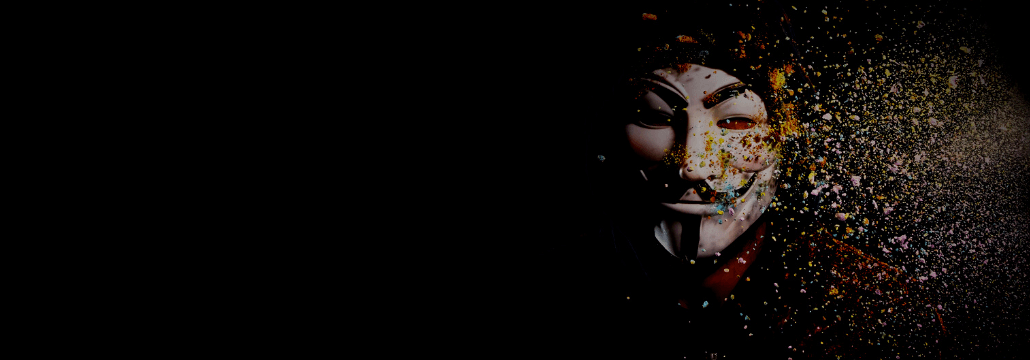Contents:
“Greetings citizens of the world!”
This is how the international collective of hackers and activists Anonymous started their message to Vladimir Putin, following Russia’s invasion of Ukraine.
Last week, on President Putin’s orders, Russian forces invaded Ukraine overnight and attacked targets across the country, prompting a response from Ukraine’s military.
As the conflict continues, measures are being taken, and countries and their leaders all over the world stand by Ukraine, hackers are also picking sides. The hacker collective Anonymous publicly declared cyberwar against Russia, supporting Ukraine.
Late Thursday, the group tweeted from an Anonymous-linked account, @YourAnonOne, that it was targeting Vladimir Putin’s regime.
The Anonymous collective is officially in cyber war against the Russian government. #Anonymous #Ukraine
— Anonymous (@YourAnonOne) February 24, 2022
Since then, Anonymous has claimed responsibility for a slew of cyber-attacks, including Distributed Denial-of-Service (DDoS) attacks that took down government websites and Russia Today, the state-backed news service.
#Anonymous message to Vladimir Putin pic.twitter.com/eIy9YpDvM5
— Anonymous (@LatestAnonPress) February 27, 2022
The DDoS attacks appeared to be ongoing on Sunday afternoon, with the Kremlin and Ministry of Defense official websites still inaccessible.
The group also claimed to have hacked the Ministry of Defence database, while on Sunday, it was declared that Anonymous had compromised Russian state TV channels, posting pro-Ukraine material such as patriotic songs and images from the attack.
JUST IN: #Russian state TV channels have been hacked by #Anonymous to broadcast the truth about what happens in #Ukraine. #OpRussia #OpKremlin #FckPutin #StandWithUkriane pic.twitter.com/vBq8pQnjPc
— Anonymous TV ?? (@YourAnonTV) February 26, 2022
Given the gang’s informal collective nature, it can be quite difficult to attribute these attacks to Anonymous certainly.
It can be difficult to directly tie this activity to Anonymous, as targeted entities will likely be reluctant to publish related technical data. However, the Anonymous collective has a track record of conducting this sort of activity and it is very much in line with their capabilities.
Russia Today publicly blamed Anonymous for their website difficulties, claiming that the attacks came from the US following the organization’s “declaration of war.” A spokesperson for the channel declared:
After the statement by Anonymous, RT’s websites became the subject of massive DDoS attacks from some 100 million devices, mostly based in the US.
Despite widespread assumptions that a Russian military assault on Ukraine would also be accompanied by major cyberattacks, it didn’t happen anything so far.
Earlier this month, we were writing about Distributed Denial-of-Service (DDoS) attacks wreaking havoc on Ukraine’s Ministry of Defense and Armed Forces, as well as two of the country’s state-owned banks, Privatbank (Ukraine’s largest bank) and Oschadbank (the State Savings Bank), but this happened ahead of the Russian offensive.
What Measures Are Being Taken?
According to The Guardian, the Russian government has imposed partial restrictions on Facebook after officials accused the social media platform of censoring state-backed media, prompting Facebook to prohibit ads from Russian state media. The state-backed media advertisements are also banned on Google’s YouTube platform.
Elon Musk, another US tech titan, is giving Ukraine satellite internet access via his Starlink satellites, while the Ukrainian government is publicly soliciting international cryptocurrency donations, supposedly receiving millions of dollars in response.
Stand with the people of Ukraine. Now accepting cryptocurrency donations. Bitcoin, Ethereum and USDT.
BTC – 357a3So9CbsNfBBgFYACGvxxS6tMaDoa1P
ETH and USDT (ERC-20) – 0x165CD37b4C644C2921454429E7F9358d18A45e14
— Ukraine / Україна (@Ukraine) February 26, 2022
Nevertheless, the cyber dimension to the Ukraine dispute has been relatively low-key thus far. According to professor of practice at the Blavatnik school of government at Oxford University and former head of the UK’s National Cyber Security Centre Ciaran Martin, cyber has played “remarkably little part” in the conflict, at least up to this point.
The cyber activity from Russia against Ukraine has been there, but is consistent with Russia’s cyber harassment of the country going back years. Similarly, from what we can see, the response against Russia from the west has not had a strong cyber component so far – it has been about stringent sanctions. All of this might change, and the west is right to remain on high alert for increased cyber activity.
If you liked this article, follow us on LinkedIn, Twitter, Facebook, Youtube, and Instagram for more cybersecurity news and topics.


 Network Security
Network Security
 Vulnerability Management
Vulnerability Management
 Privileged Access Management
Privileged Access Management
 Endpoint Security
Endpoint Security
 Threat Hunting
Threat Hunting
 Unified Endpoint Management
Unified Endpoint Management
 Email & Collaboration Security
Email & Collaboration Security










